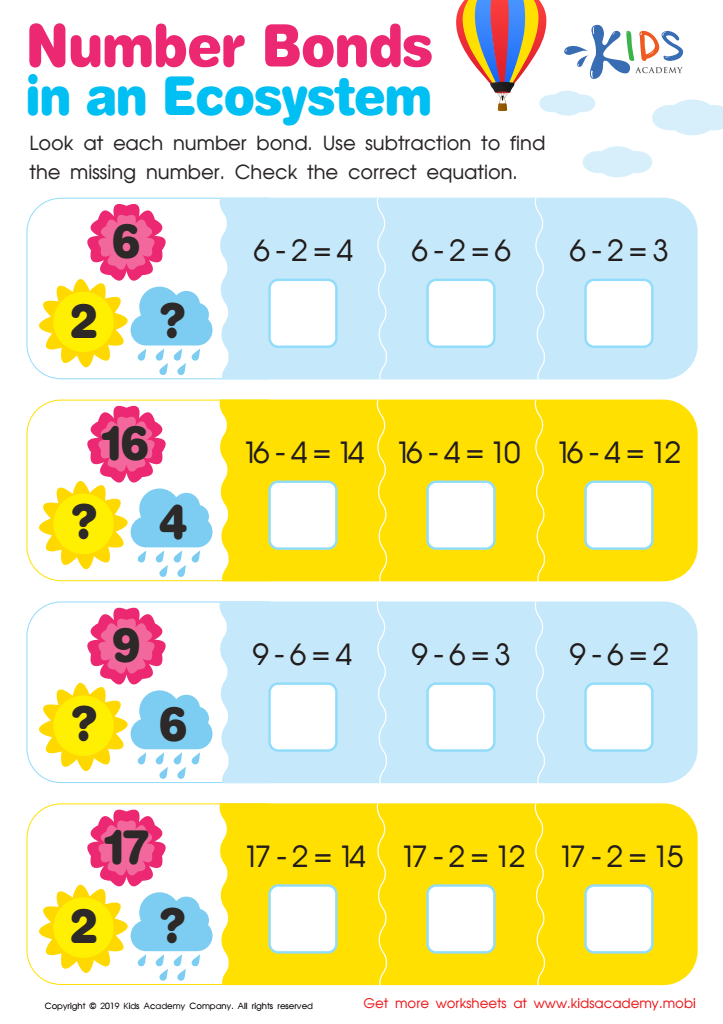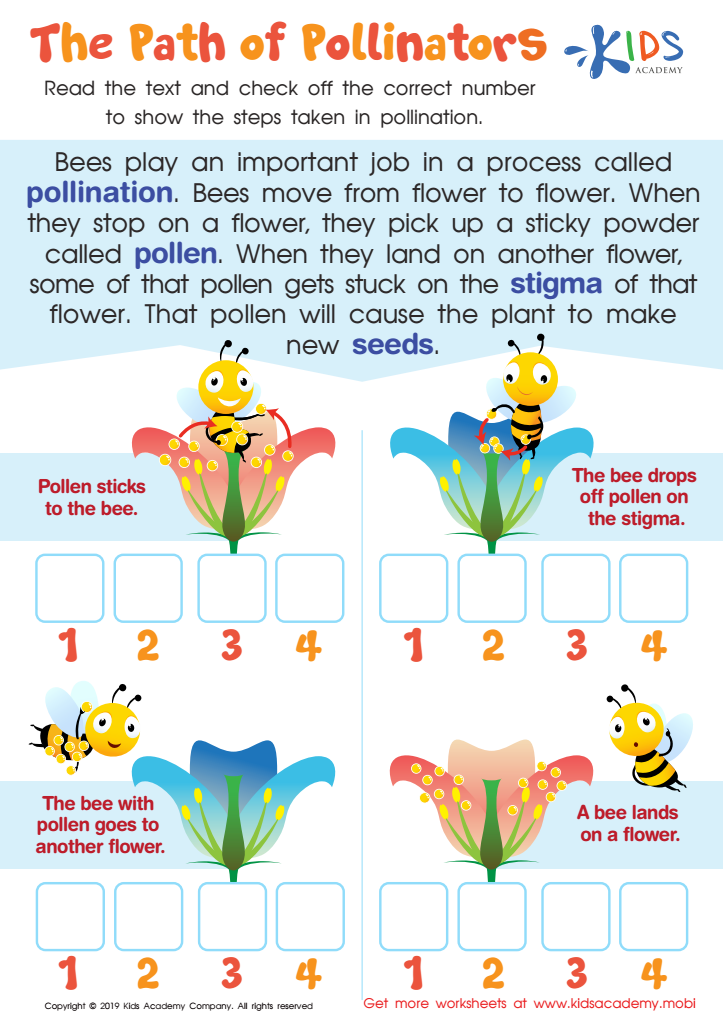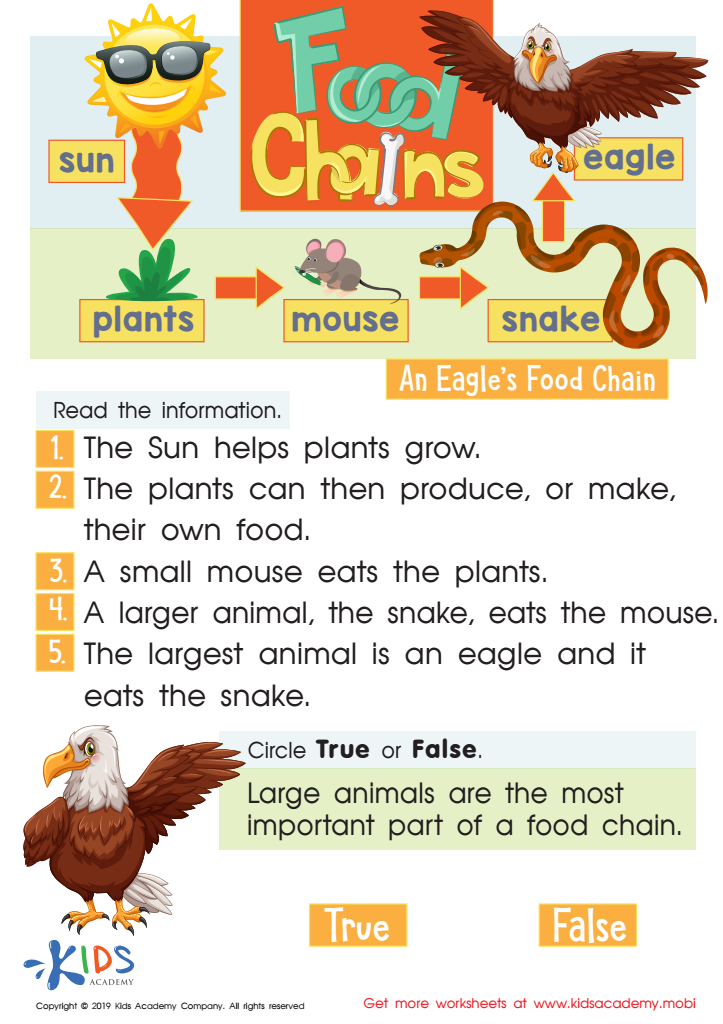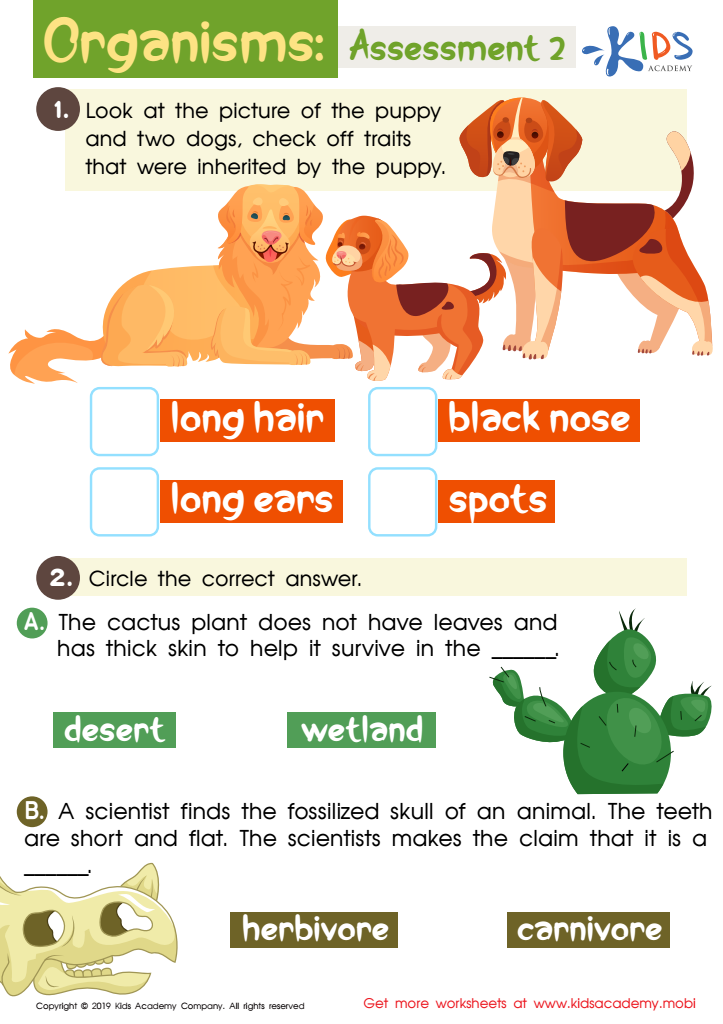Learning about ecosystems Worksheets for Ages 4-9
5 filtered results
-
From - To
Explore our engaging "Learning about Ecosystems Worksheets" designed for young learners aged 4-9. These printable resources provide an exciting way for children to discover the diverse environments that support life on Earth. With colorful illustrations and fun activities, educators can seamlessly incorporate lessons on plants, animals, and their habitats into their classrooms. Each worksheet promotes critical thinking and enhances observational skills while making learning about ecosystems enjoyable. Perfect for classroom use or home-schooling, our worksheets foster a love for nature and environmental science. Start your child’s journey into the wonders of ecosystems today!


Pollinator Positions Worksheet


Number Bonds in an Ecosystem Worksheet


The Path of Pollinators Worksheet


Food Chains Worksheet


Organisms: Assessment 2 Worksheet
Parents and teachers should prioritize learning about ecosystems for children aged 4-9 because this foundational knowledge enriches their understanding of the world while fostering a sense of responsibility toward the environment. At this age, children are naturally curious and eager to explore. Introducing them to ecosystems nurtures their inquisitive nature, encouraging them to observe and appreciate the intricate web of life that surrounds them.
Understanding ecosystems also empowers children to grasp crucial concepts such as interdependence, biodiversity, and the impact of human actions on nature. These lessons about the balance of nature can cultivate empathy for living things, instilling an appreciation for wildlife and plant life. Furthermore, as children learn about ecosystems through interactive activities and hands-on experiences, they develop critical thinking and problem-solving skills.
Incorporating ecosystem education into early learning promotes sustainability and environmental stewardship from a young age. As children become aware of environmental issues such as pollution and climate change, they are better equipped to actively participate in conservation efforts, fostering a generation committed to protecting the planet. Ultimately, teaching kids about ecosystems lays the groundwork for responsible citizenship and encourages them to advocate for a healthier, more sustainable world.
 Assign to My Students
Assign to My Students















